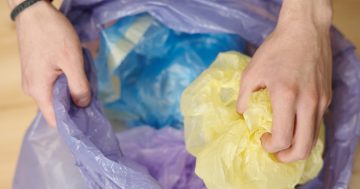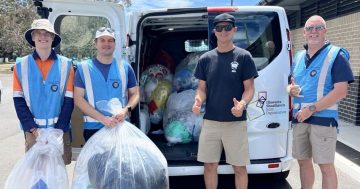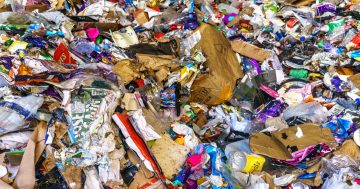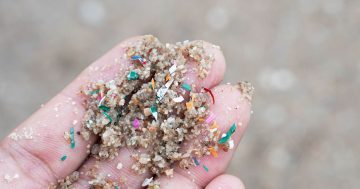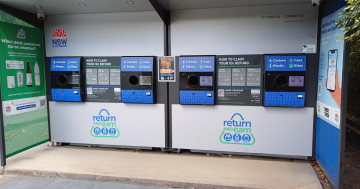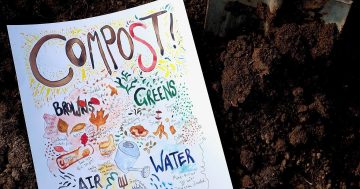Pete Shmigel* says tackling the plastic problem means Australia needs to think much bigger than banning plastic drinking straws and shopping bags.
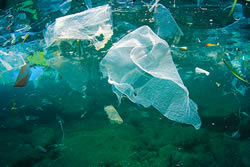 When we look back on 2018, we might think of it as the Year of the Ban, and we might regret it.
When we look back on 2018, we might think of it as the Year of the Ban, and we might regret it.
Across Australia, both governments and retailers introduced bans on plastic items like single-use shopping bags and drinking straws.
When we look at their narratives, it comes down to something like: “We understand our constituents and customers are concerned about plastic’s impact on our environment, especially marine systems.”
They may well be, and there’s little scientific doubt that disposed plastic can harm and kill what lives in water.
However, bans don’t address a bigger picture around plastics, the global and local environment, and the Australian economy.
And this is a problem.
Bans are like bullets.
You can only fire them one time, and you really need a clear target to shoot at.
Indeed, bans assume there’s something very dangerous about plastic per se and therefore we need to avoid the danger.
When we build public policy this way, we don’t see something important: the chance to improve environmental results while also adding to our gross domestic product (GDP) through plastic eco-efficiency.
Consider the following:
Some 90 per cent of world ocean plastic comes not from Australia or developed countries but from the developing world’s river systems.
If our goal is protecting global marine species, let’s direct our efforts to where it will make a difference.
One initiative, Plastic Bank, sees global companies “offset” their plastic “footprints” by funding incentives (such as school books) for people in the developing world to collect waste plastic.
Single-use plastic shopping bags and drinking straws make up less than 1 per cent of the more than 100 kg of plastic that each Australian uses every year.
According to Federal Government reports, we probably use about 40,000 tonnes of single-use bags and straws; we use about 3.5 million tonnes of total plastic.
Did somebody say tip and iceberg?
If you saved your bags and straws all year long, you could make a ball the size of a volleyball and then throw that ball in the available recycling bin at Coles or Woolies.
Nice shot.
Some 66 per cent of the total plastic we consume is through packaging.
While it’s a source of our consumer guilt, it also keeps our goods and food products transportable, safe and hygienic.
More plastic is now going into our growing collections of digital gear (15 devices per household); safer, more affordable cars (being built with less metal every year); and medical care for any ageing population.
While we may be uncomfortable with our behaviours around it, the fact is that plastic — which like every material from cotton to coal has an environmental impact — is useful in modern life.
So, if it’s here to stay and good in many ways, wouldn’t it be wise to keep its good aspects while reducing its bad aspects?
We currently recycle about 12 per cent of all our plastic.
The majority of what’s collected from our homes and businesses is sent to overseas plants for reprocessing and remanufacturing.
Only about 150,000 tonnes (remember we consume 3.5 million) gets recycled here.
A new National Waste Policy will set a target of 70 per cent recycling of packaging plastic — for which there will need to be massive market and infrastructure development.
The number of plastic recycling facilities in Australia is around 70.
They turn waste plastic back into things like synthetic timber, hoses, playground equipment and pallets.
Because their current products are niche, their margins are slim.
In response to restrictive changes in Chinese policy, nearly 20 such plants have opened in the US in the last year alone.
Australia is increasingly relying on imported plastic from China and elsewhere in Asia.
The price of virgin plastic resin is linked to the price of crude oil, a resource that’s finite and controlled by people like Saudi princes and Russian oligarchs.
(By 2050, some 50 per cent of the world’s oil could be going into plastics.)
So, how do we flip this on its head?
How do we go from banning stuff to policy that does good green and gold things?
Think big: Resource security, job creation, economic sovereignty
France and the UK are showing the way.
In recent weeks, both have introduced financial incentives for local manufacturers to use recyclate plastic.
Did they do it for the environment? Sure.
Recyclate plastic is much more energy and water efficient than virgin resin.
But mostly it’s their savvy response to the uncertainty and gamesmanship of the Trump/Putin/Xi era.
Namely, they did it for resource security and economic sovereignty reasons.
Indeed, the French and the Brits are making sure — by supporting the development of home-grown recyclate plastic industries — that they have assured access to a material that’s vital to their economies going forward.
That’s where Australia’s Environment Ministers, meeting in early December — and our Treasurers — need to go strategically.
For example, a small reduction in payable GST for companies that source recyclate rather than virgin materials would go a long way to foster markets, build local capacity and protect our economy — not just our environment — going forward.
If we locally reprocessed half the collected waste material we currently export, independent modelling shows we would generate 500 more jobs, with many in regional centres — and reduce greenhouse gases.
The taxpayer wins too because sending less material to landfill means paying less of the largely hidden landfill levies that apply in nearly every State.
Or, governments could do something really simple: buy better stuff.
Using recycled plastic (and glass) instead of virgin sand in the roads that governments fund and build is a great win all around.
It’s cost effective and performs some 65 per cent longer.
Let’s leave the last word to those “mad greenies” at global wealth management giant Credit Suisse.
They recently looked at the new National Waste Policy from the point of view of investment.
They have warned of an “impending plasticide” where “there will be too much plastic waste domestically with no at-scale export markets”, and the Federal Government will be forced to introduce “an emergency tax on virgin resin or additional tariffs on finished plastic goods”.
So, ban the bans and look at more productive ways to manage our plastics.
* Pete Shmigel is the CEO of the Australian Council of Recycling.
This article first appeared at www.businessinsider.com.au.


